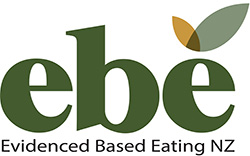Acne
A growing body of epidemiologic and clinical research shows an association between diet and acne. Research repeatedly implicates foods that are prevalent in the Western diet, especially dairy, sugar, refined carbohydrates and processed foods.
The two acne promoting dietary factors that have been most extensively studied are dairy and high glycemic load foods. These factors influence hormonal and inflammatory factors increasing acne production and severity. Hormonal influences that raise insulin and insulin-like growth factor 1 (IGF-1) levels are the problem. Elevated IGF-1 levels lead to changes in genetic expression that cause inflammation, hormonal changes, increased oil production, and development of acne.
As well as dairy and high glycemic foods, excessive oil production by the skin can be intensified by oil intake in the diet. Vegetable oils contain omega-6, high levels of which have an inflammatory effect on the skin and is associated with the development of acne. The effects of oil intake on acne is magnified by the consumption of high glycemic carbohydrates, such as processed baked products (cakes, biscuits, white bread, sweets, packaged breakfast cereals). Higher intake of omega-3 fatty acids is associated with reduced likelihood of acne, as omega-3’s have and anti-inflammatory effect that counteract acne production. Excellent plant-based sources of omega-3’s are walnuts, flax seeds, chia seeds, spinach, soybeans, tofu, beans and lentils.
Although excessive intake of fats or oils (especially peanuts or peanut butter) can contribute to sebum production and acne, does not mean nuts and seeds need to be removed from the diet to improve acne. It is the combination of glycemic load and other hormone promoters acting together that produce acne. When your diet has more vegetables and beans in it and high glycemic foods (processed refined carbohydrates) have been removed, it can tolerate more fats without the acne inducing effects. This also increases your macronutrients, antioxidants and phytochemical intake which balances your hormones and creates healthier skin.
Resources
No Body Needs Milk
Centre For Nutrition Studies – Dr. Alan Goldhamer D.C.
Preventing Acne with Diet
Dr Joel Fuhrman M.D.
Saving Lives by Treating Acne with Diet
Michael Greger M.D. FACLM
Skim Milk and Acne
Michael Greger M.D. FALCM
Dairy Linked to Acne Development
Physicians Committee for Responsible Medicine
Research papers
https://www.sciencedirect.com/science/article/abs/pii/S0738081X10000416?via%3Dihub
Association between Adult Acne and Dietary Behaviours https://pubmed.ncbi.nim.nih.gov/32520303/
Diet in Acne: further evidence for the role of nutrient signalling in acne pathogenesis https://pubmed.ncbi.nlm.nih.gov/22419445/
Insulin-Like Growth Factor 1 Increases the Expression of Inflammatory Biomarkers and Sebum Production in Cultured Sebocytes
https://pubmed.ncbi.nlm.nih.gov/28223742/
Diet and acne: review of the evidence from 2009 to 2020
https://pubmed.ncbi.nlm.nih.gov/33462816/
Does diet really affect acne?
https://pubmed.ncbi.nlm.nih.gov/20361171/
